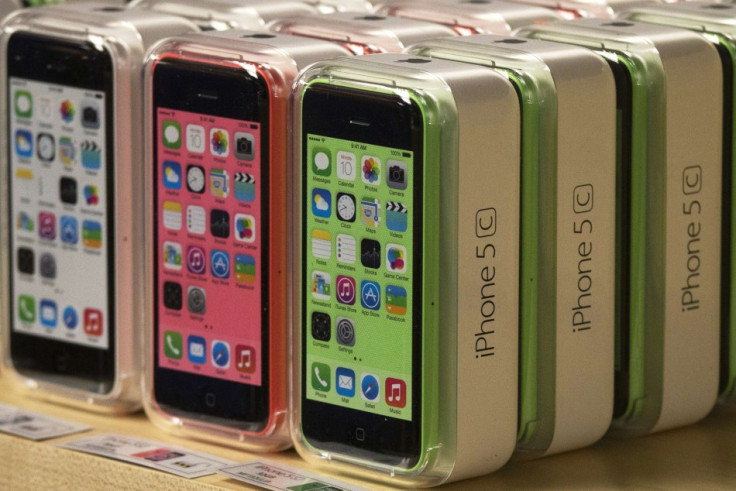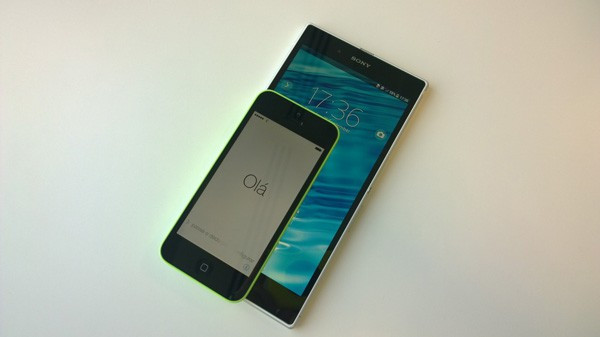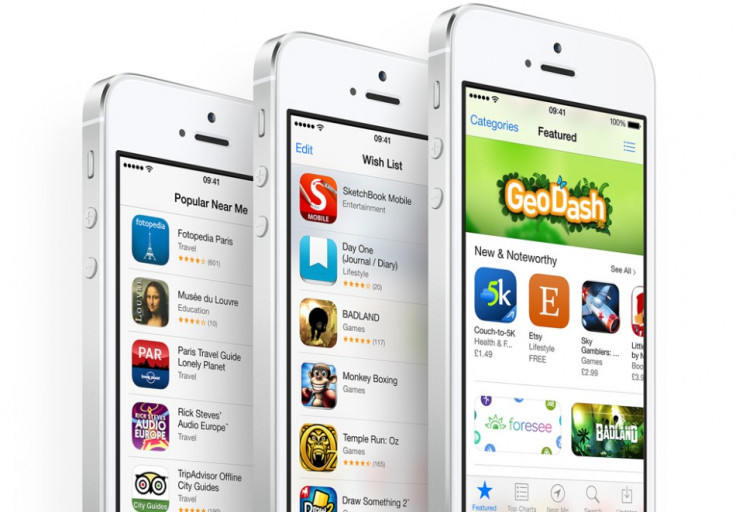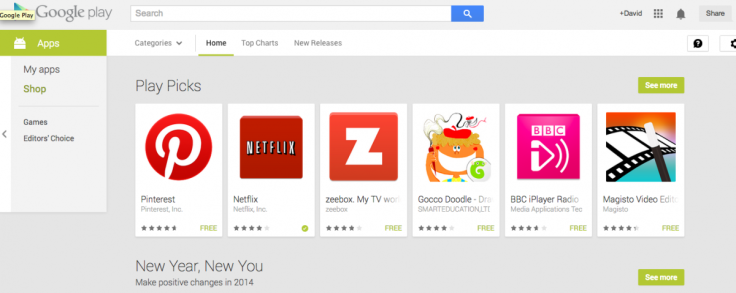iPhone vs Android: Which Smartphone Should You Buy?

The world is expected to buy over 1 billion smartphones in 2014.
Considering that the first real smartphone - the original iPhone - was launched just six years ago, this figure is all that more remarkable.
For consumers things have never been better. Increased competition and the entry into the UK market of budget smartphone makers like Huawei and ZTE have driven prices down, while quality and choice has increased.
The problem now is choosing the right smartphone for you.
While there are other options out there (notably Windows Phone and BlackBerry) most people will end up chosing between Apple's iPhones or one of hundreds of Android-based smartphones from manufacturers like Samsung, HTC, LG, Sony and many more.
Which is best for you? Here we look at the differences each platform offers to see which suits your needs the best:
iPhone or Android: The Phones

Apple offers three iPhone options at the moment - the iPhone 4s, the iPhone 5s and the iPhone 5c (right). All are relatively similar with the iPhone 4s the oldest and smallest of the three. The iPhone 5s is the flagship model with features like its fingerprint scanner and faster processor offering the best performance of any of Apple's phones.
For the fashion conscious, the slightly cheaper iPhone 5c is available in a range of vibrant colours and a unashamedly plastic finish.
But that's it from Apple.
Android is a completely different proposition. There are hundreds - if not thousands - of smartphones available running Google's Android operating system. In the UK we only see a fraction of these, but you still have huge variety available from premium smartphones like the HTC One and Samsung Galaxy S4, to the budget smartphones like the Moto G.
In terms of design most Android smartphones look very much alike (thin, rectangular and black) and at similar prices offer similar features (screen resolution, processor power, storage).
In terms of unique features, Samsung phones integrate eye control and hand gestures; HTC's One smartphone has excellent front-facing speakers; Motorola's Moto X can be controlled using just your voice and LG's G Flex has a curved screen.
iPhone or Android: Size
As the smartphone market has matured, smartphones have become bigger and bigger, to the point where manufacturers are now blurring the lines between smartphone and tablet.

While most of the premium Android smartphones have screens of between 4.7in and 5in, the rise of the phablet (a horrible conflation of the words phone and tablet) has seen devices like the Galaxy Note, Sony Xperia Z Ultra and HTC One Max push screen sizes up to over 6in.
Despite the increase in screen size however, manufacturers have been able to keep the weight and thickness of the phones down, with almost all major smartphones now less than 10mm thick and most noticeably less than than.
While Apple may have led the smartphone charge, in the last 12 months its iPhones have looked decidedly small in comparison to the Android smartphones out there.
At 4in (or 3.5in for the iPhone 4s) Apple's iPhones are compact but for those looking to watch video or play games on their smartphone, this could be seen as too small.
The advantage of such small devices however is that they are incredibly light, fit easily in even the smallest pocket and can be used one-handed - something which cannot be said for some of the larger and cumbersome Android smartphones.
iPhone or Android: Software
Apple runs its own software on its own hardware, with iOS tightly integrated with the devices it is running on. this means the software is virtually bug free will run very smoothly on your iPhone.

It is a very intuitive piece of software and with the iOS 7 has been given a much-needed overhaul by Apple. Setting up your phone is easy and if you have used an Apple product before, signing in with your AppleID makes things even easier.
That said, the software is very much controlled by Apple, meaning you can only do what Apple allows you to do, and only install apps which Apple approves. It is also difficult to put your own music or video content onto an iPhone, with Apple forcing everything through iTunes.
For some this will be a problem - for others it won't make a bit of difference.
For many years Google was playing catch-up with Apple in terms of software. Android was not a very easy piece of software to use, with multiple crashes and bugs commonplace.
In the last 12 months however the company seems to have got its act together, and the latest version of the movie operating system (Android 4.4 or KitKat) is excellent.
It is much smoother, faster and most importantly doesn't crash all the time. The problem is that most manufacturers don't run pure Android, and add their own software layer on top, which tends to slow things down unfortunately.
Android is also much more open. While Google's Play store is the most 'reliable' source of apps, if you are adventurous, you can install software from elsewhere.
It is also much easier to load your own video and music onto an Android phone by simply transferring them from your computer.
iPhone or Android: Apps
In terms of apps, Apple may not have the biggest selection any more, but in terms of quality it is still out in front.
Apple has a huge selection of games and apps with most major companies and app developers choosing to publish the iOS version of their apps first, before looking at Android.
This means that if you want access to the best apps first, then an iPhone is your best bet.

Android now has over one million apps available in the Play Store and most of the major apps available on iOS are also available on Android these days.
However one of the biggest problems facing Android is security. Not only can people install apps from third-party app stores with dubious credentials, the Play store itself has been shown to be hosting numerous malicious apps.
The rise of mobile malware has been almost entirely driven by Android apps as the platform is seen as ripe for exploitation by cyber-criminals.
While sticking to well known apps from reputable publishers is advisable on Android, even these can be spoofed by criminals looking to make money.
iPhone or Android: Price
Apple is a premium brand and sells its products at a premium price. In the UK the prices for SIM-free Apple phones is as follows:
- iPhone 4s (8GB): £349
- iPhone 5c (16GB): £469
- iPhone 5s (16GB): £549
On a two year contract, the iPhone 4s can be had for £22-a-month with no up-front cost - though it is a wk-and-a-half-year old phone.
If you want to get the iPhone 5c for free, you pay £32-a-month for two years, while a free iPhone 5s will cost £42-a-month over two years.
Android on the other hand offers a much broader range of options.
In terms of SIM-free deals, 2013 has seen the budget smartphone come to the fore, with the Motorola Moto G (£120) setting new standards of what you can expect from a cheap phone.
Moving slightly up the ladder, the Google Nexus 5 offers premium quality and performance for under £300, while Motorola's Moto X promises unique features for £380.
At the top end, Samsung's Note and Galaxy S4 will be set you back close to £500 while LG's G Flex will cost an eye-watering £690 SIM-free.
In terms of contracts, there is A LOT of choice. Phones like the Samsung Galaxy Ace are available free paying just £8.50-a-month, giving you 100 minutes, 5000 texts and 500MB of data.
If you have chosen to go with Android it is worth investigating all options as there are a lot of deals available at the moment as competition is very intense.
iPhone or Android: Conclusion
It is difficult to recommend either iPhone or Android categorically.
Both have their merits and both have their flaws. You will have to look at each and decide which suits your needs most.
Want to watch a lot of video on your smartphone? Then a larger screen Android device which makes it easy to get videos onto it is probably best.
Want a smartphone which is simple to set up and use? Then Apple's iOS on the iPhone is likely your best bet.
The decision will ultimately come down to what you want to use your phone for and how much you are willing to pay.
© Copyright IBTimes 2025. All rights reserved.






















